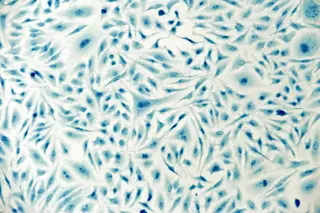I was having a discussion with some friends who have all expressed interest in being genotyped or have been about putting their information into the public domain. They were a pretty savvy lot (half of the six had been genotyped), but one expressed the common sense objection that "someone could find something in the future." In other words, a really creepy stalker could keep running your data through Promethease. Imagine you're a really strange person, and you have a bunch of gentoypes of people who you want to know about, and you design a program which scours the academic literature and constantly notifies you when the individuals in your database pop up with a large effect mutation. I have no idea why someone would do this. Perhaps you could be blackmailed by someone threatening to disclose to your employer than you had a 50% greater chance of a heart attack ...
Why genetic privacy could be doomed
Explore the future of genotyping personal data and its implications for genetic privacy and security. What lies ahead for genome sequencing?
More on Discover
Stay Curious
SubscribeTo The Magazine
Save up to 40% off the cover price when you subscribe to Discover magazine.
Subscribe












